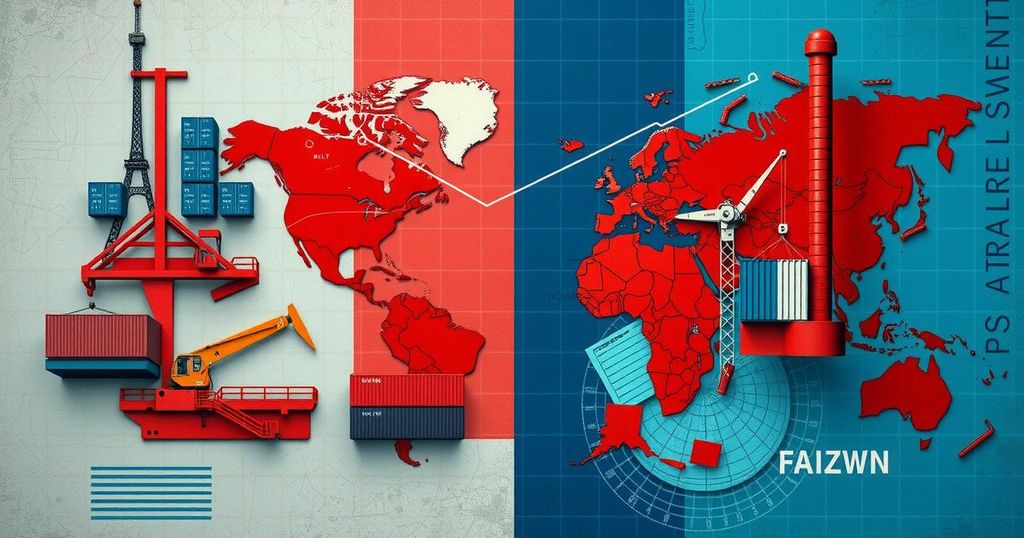Understanding Trump’s Trade War with China: Implications and Future Directions
Donald Trump’s trade conflict has sharpened, focusing predominantly on China with heightened tariffs. This strategy stems from his intention to disrupt the current global trade framework and challenge China’s economic model, which has not shifted significantly. The outcome will depend on negotiations with China and the U.S.’s commitment to free trade principles, with potential ramifications for international trade dominance.
In recent developments, President Donald Trump’s trade conflict has intensified, focusing primarily on China rather than a broader fight against multiple countries. While a temporary pause on increased tariffs affects various nations, China is subjected to significantly higher tariffs, with an alarming rate of 125%. This decision follows China’s own planned tariff increase of 84% on U.S. goods, which Trump interpreted as a sign of “lack of respect.” Thus, he perceives this situation as unfinished business from his first term.
For President Trump, this trade war represents an effort to dismantle the global trade framework that favors China’s status as the manufacturing hub. He argues that the prevailing belief that increased trade benefits all is flawed. Observations from 2012 indicated that many saw engaging with China as beneficial; enhanced trade was believed to support global growth and improve living standards in China, driving political reform.
Despite these optimistic views, China has maintained a tight grip on political power, and the anticipated transition to a consumer-driven society has been slow. The government has pursued initiatives such as “Made in China 2025,” intending to elevate its global manufacturing leadership. Trump, appealing to concerns of American economic decline, successfully leveraged this sentiment during his presidential campaign, portraying China’s rise as detrimental to U.S. workers.
Trump’s tariffs initially shattered existing trade paradigms, resulting in continued economic pressures on China. However, these measures have not radically altered China’s production model, with the country now leading global electric vehicle production and battery output. Consequently, Trump has initiated further tariff escalations, posing unprecedented challenges to the global trading system.
The future trajectory of these trade relations hinges on two crucial inquiries: whether China will engage in negotiations and, if so, its willingness to make significant economic modifications to its export-driven model. The context is complex, given China’s economic strategy is tightly interwoven with national ambitions and its political structure.
Moreover, an emerging question for the U.S. concerns its commitment to free trade principles. Trump often promotes tariffs as beneficial mechanisms to stimulate domestic investment and reinvigorate American business, implying they may serve broader purposes beyond simple protectionism. Should China perceive tariffs as an inherent American strategy, it could opt against negotiations, leading to a perilous contest for economic dominance between the two nations rather than cooperative engagement.
In summary, President Trump’s intensified trade measures against China reflect his ongoing efforts to reshape global trade dynamics and address perceived threats to the U.S. economy. The situation is complex, as it hinges on China’s response to negotiations and the broader implications of America’s belief in and approach to free trade. The potential consequences of this trade conflict could reshape the economic landscape and challenge established norms, indicating a shift towards a more confrontational international economic paradigm.
Original Source: www.bbc.com




Post Comment